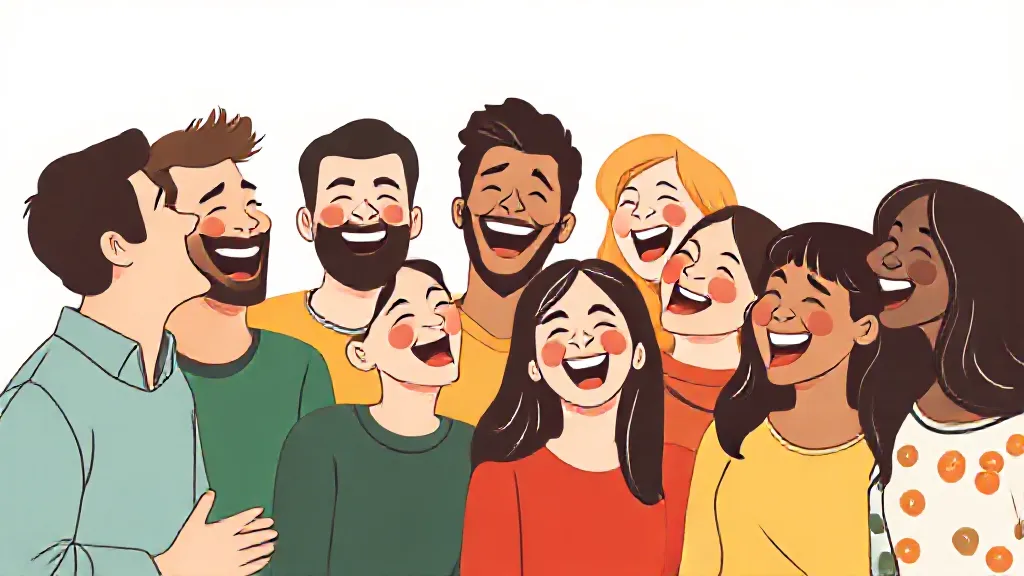Humor, often regarded as a universal language, possesses the remarkable ability to transcend cultural barriers, bringing people together in shared laughter regardless of their backgrounds. This phenomenon raises intriguing questions about the nature of humor itself: What makes something funny? How do different cultures interpret humor? And in what ways can humor act as a bridge between diverse communities?
The Nature of Humor: A Cultural Perspective
At its core, humor is a complex interplay of cognitive, emotional, and social elements. Different cultures have unique comedic traditions, shaped by historical contexts, societal norms, and linguistic nuances.
For instance, while slapstick comedy may resonate well in Western cultures, Eastern cultures may prefer subtlety and wordplay. This divergence is evident in the works of comedians like Charlie Chaplin, whose physical comedy appealed to a global audience, and the Japanese art of "rakugo," a form of verbal entertainment that relies heavily on linguistic cleverness and cultural references.
The Role of Shared Experiences in Humor
Shared experiences often serve as the foundation for humor, creating a common ground for individuals from diverse backgrounds.
Cultural references, social norms, and collective memories can significantly influence what is considered funny. For example, the humor found in political satire may resonate differently based on a person's familiarity with a specific political landscape. Comedians like John Oliver have successfully used this concept, addressing global issues while making them relatable through humor, thus fostering a sense of community among viewers from various cultures.
Laughter as a Social Connector
Laughter itself is a powerful social connector, capable of breaking down barriers and fostering relationships. Studies have shown that laughter can trigger the release of endorphins, promoting feelings of happiness and bonding among individuals. In multicultural settings, humor can act as an icebreaker, easing tensions and encouraging dialogue between people who may otherwise feel apprehensive about their differences.
This is particularly evident in international comedy festivals, where performers from various backgrounds come together, showcasing their unique styles while simultaneously finding common ground in humor.
The Evolution of Global Comedy
The rise of the internet and social media has significantly transformed the landscape of comedy, allowing humor to spread rapidly across cultural boundaries. Platforms like YouTube and TikTok have given rise to a new generation of comedians who leverage global themes to create content that resonates with diverse audiences.
For instance, the "relatable" humor of creators like Lilly Singh and Hasan Minhaj has garnered international acclaim, as they blend cultural anecdotes with universal themes of identity, family, and belonging.
Challenges in Cross-Cultural Humor
Despite its potential to unite, humor can also present challenges when crossing cultural boundaries. Misunderstandings can arise when jokes rely on specific cultural knowledge or linguistic subtleties that may not translate well.
For example, puns and wordplay that are humorous in one language may fall flat in another, leading to confusion or offense. Comedians must navigate these complexities, often tailoring their material to ensure it resonates with a diverse audience without losing its essence.
The Impact of Globalization on Humor
Globalization has played a crucial role in shaping contemporary humor, as cultural exchanges have become more prevalent.
The blending of comedic styles from different regions has resulted in hybrid forms of humor that appeal to a wider audience. For example, the fusion of stand-up comedy with traditional storytelling techniques from various cultures has given rise to unique performances that reflect a globalized perspective. This evolution emphasizes the adaptability of humor, showcasing its ability to evolve while maintaining its core function of entertainment.
Conclusion: The Future of Humor in a Global Context
As the world becomes increasingly interconnected, the potential for humor to transcend cultural barriers continues to grow. Comedians and audiences alike are recognizing the importance of inclusivity and understanding in comedic expression. The future of humor lies in its ability to embrace diversity while celebrating the shared human experience, reminding us that laughter is indeed a universal language that can foster empathy and connection among people from all walks of life.
Image Prompt
Create an image depicting a diverse group of people laughing together in a multicultural setting, symbolizing the universal nature of humor and the joy it brings across different cultures.
